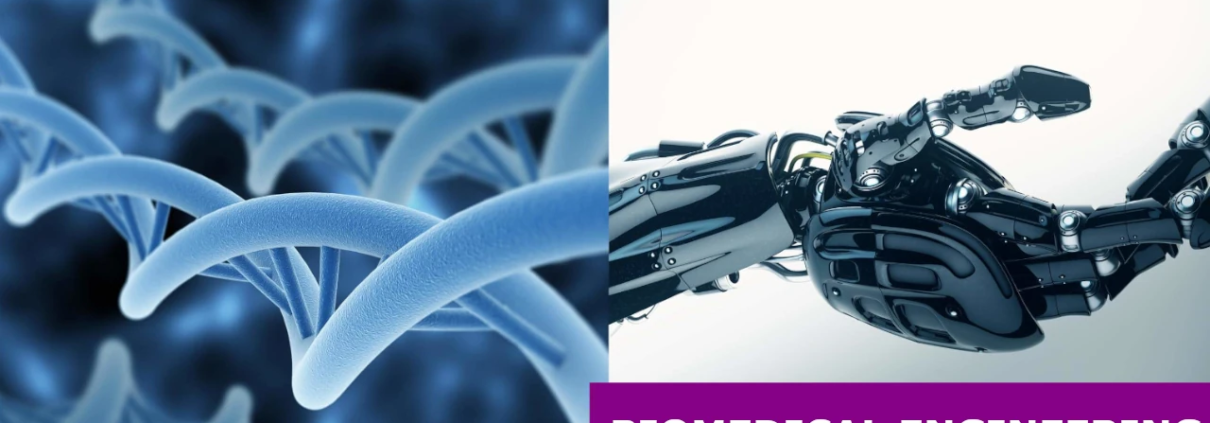B.E – BIOMEDICAL ENGINEERING
Biomedical engineering is a discipline that combines principles from engineering, biology, and medicine to develop innovative solutions to healthcare problems. The B.E. in Biomedical Engineering is a four-year undergraduate course that equips students with the necessary skills and knowledge to design, develop, and test medical devices, instruments, and equipment.
The curriculum of the course includes subjects such as anatomy and physiology, biomaterials, medical imaging, biomechanics, signal processing, and bioinstrumentation. Students will learn how to apply engineering principles and techniques to solve medical problems, create and test prosthetic devices, design and develop new medical instruments, and analyze biological data.
The course also includes laboratory sessions, design projects, and internships, which provide students with practical experience and exposure to real-world challenges. Students will work on projects such as developing an artificial organ, designing a medical imaging system, creating a wearable health monitoring device, and designing a drug delivery system.
Graduates of the B.E. in Biomedical Engineering course have diverse career opportunities in areas such as medical device manufacturing, hospitals, research laboratories, and government agencies. They can work as biomedical engineers, research scientists, medical equipment designers, product development specialists, and regulatory affairs specialists.
The demand for biomedical engineers is expected to grow rapidly as the healthcare industry continues to advance and seek new solutions to health challenges. The skills and knowledge gained from this course are highly valued in the healthcare industry, and graduates can contribute to the development of new medical technologies that improve patient care and save lives.



